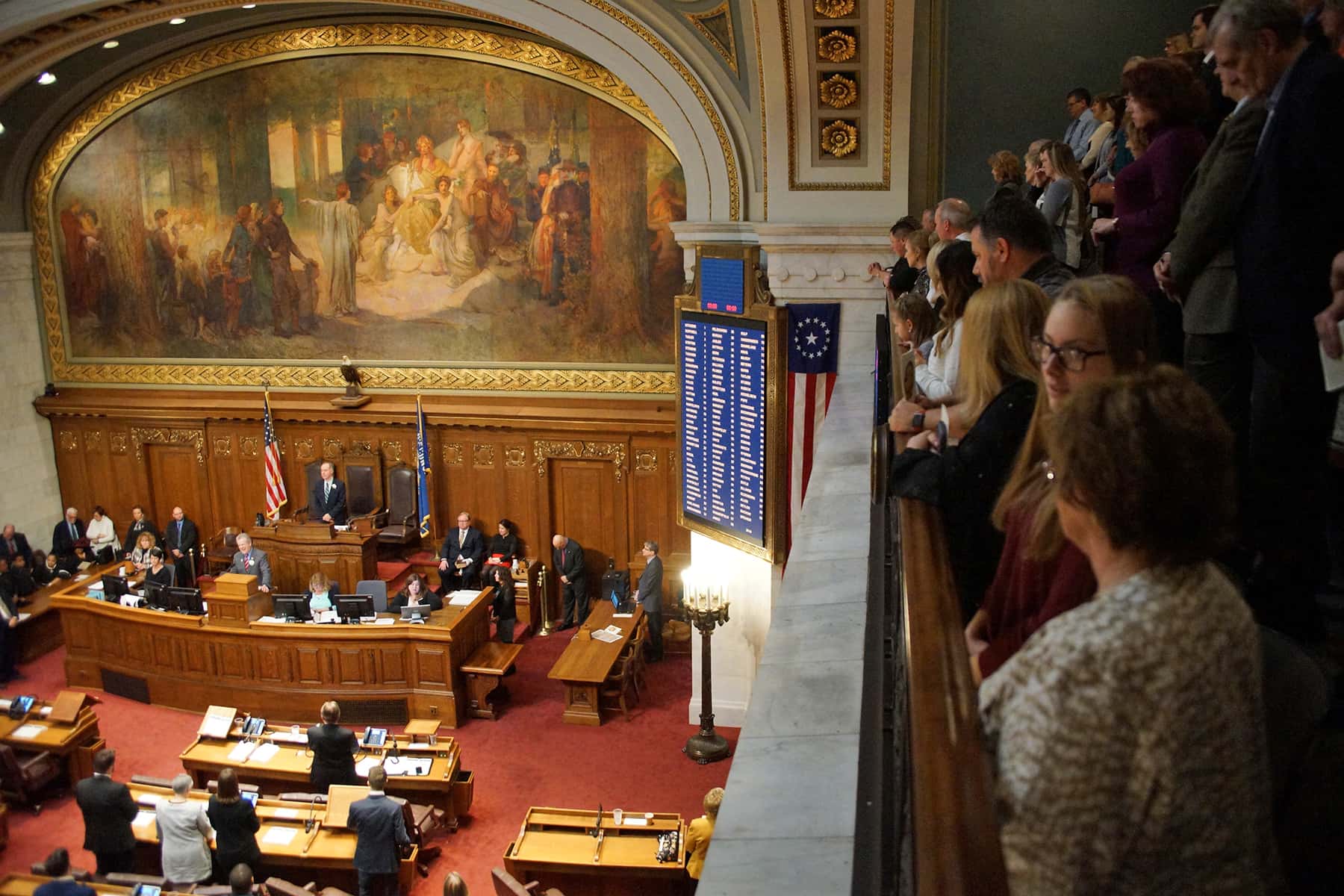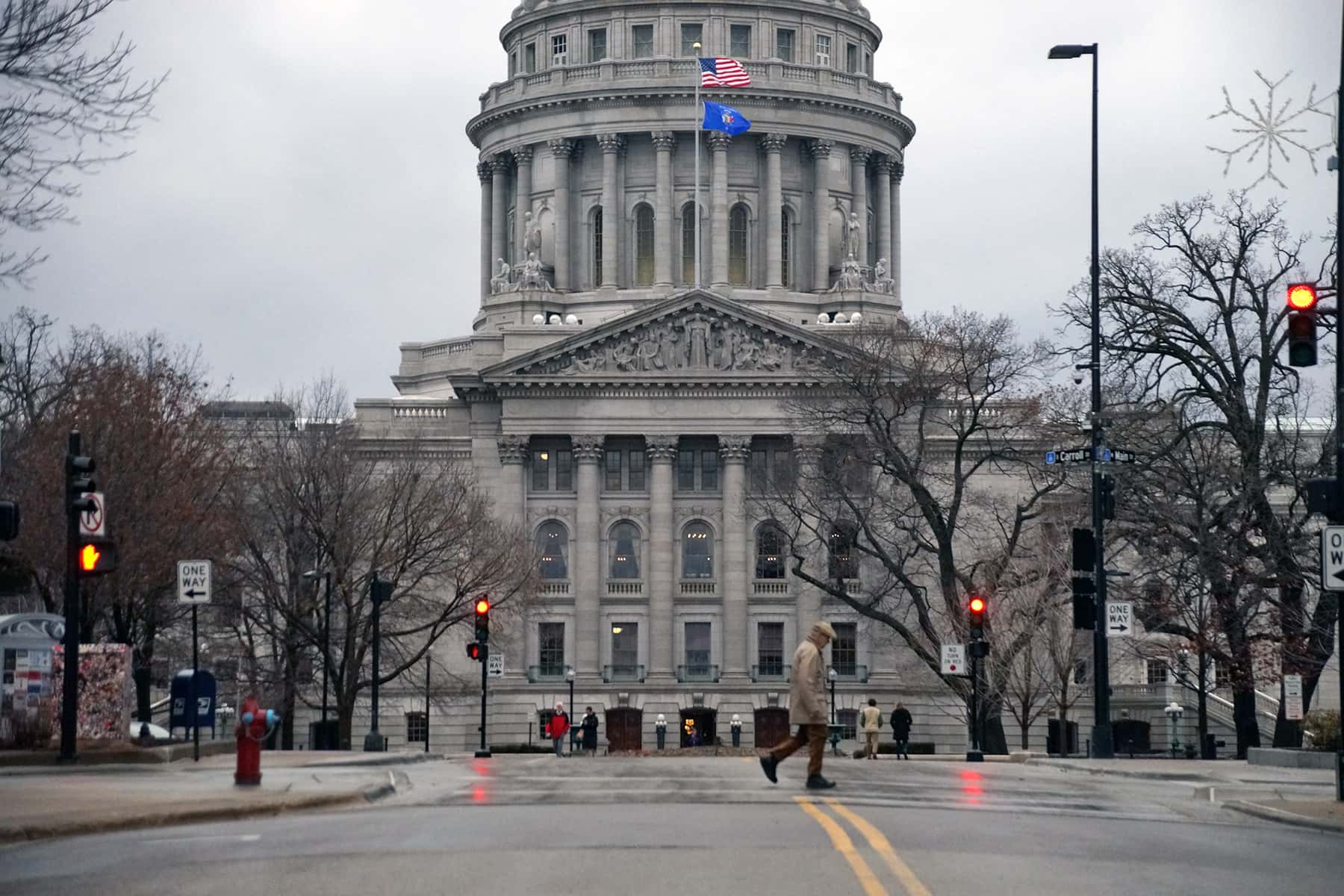
A Dane County Circuit Court judge ruled on March 26 in favor of Wisconsin unions, in their lawsuit challenging the Republican Legislature’s unconstitutional power grab during the last days of former Governor Scott Walker’s Administration.
The judge immediately blocked most of the laws from taking effect, restoring to the Governor and Attorney General most of the powers that were stripped away from them and handed to the state legislature.
“For the second time in less than a week, an impartial judge ruled against legislative Republicans and their lame duck session. This is an important victory for the people of Wisconsin and our constitution. The decision upholds our constitution’s separation of powers, which has guided this state since 1848,” said Governor Tony Evers in a statement.
In his ruling on SEIU v. Vos, Judge Frank Remington likened the state Constitution to “a keel on a great ship,” saying while it was not visible it has a critical function and aimed to maintain the balance of each arm of government.
“In December, 2018 the Legislature and then Governor Scott Walker upended the balance that this State has had for most all of its 171 years,” Judge Remington said in his decision. “The time has come to right this ship-of-state so Wisconsin can resume smooth sailing ahead.”
Judge Remington found that the most significant and sweeping parts of the lame duck bills stripped power from the Executive Branch and handed it directly to the Legislature were unconstitutional. He issued an immediate partial temporary injunction.
A previous injunction against the laws was granted last week in a separate case brought by the League of Women Voters, which argued that the entire lame duck session itself was convened improperly in violation of the state constitution. That case was about the process of how Governor Walker and the Legislature took action, while the March 26 ruling was on the constitutionality of the power-grab bill itself.
“It is now abundantly clear that the lame duck session was nothing more than an illegal power grab intended to override the will of the people,” added Governor Evers. “It is time to move beyond this chapter and work together to build a Wisconsin that puts the people first.”
The Governor has acted quickly on a few powers that were returned to him. He ordered the state attorney general to withdraw Wisconsin from a multi-state lawsuit challenging the Affordable Care Act, and rescinded 82 appointments made by former Governor Walker shortly before he left office.
“The ruling sends a strong message to politicians everywhere that when you lose an election, you can’t go back and change the rules to thwart the will of the voters,” said Mary Kay Henry, International President of SEIU. “This victory shows the power that working people have when they join together in a union.”
The unions argued that after the people of Wisconsin voted to change the state’s leadership, the outgoing government sought to change the rules and concentrate power in the hands of a smaller number of people. They argued that it violated the Separation of Powers doctrine set forth in the Wisconsin Constitution, which gives the Executive Branch the exclusive authority to enforce the laws passed by the Legislative Branch.
According to Judge Remington, “One could scarcely design a better way to concentrate the power to suspend the law outside either of the two other branches of state government.”
- Gubernatorial powers restored for Tony Evers after judge blocks lame-duck session laws
- Federal Judge strikes down early voting restrictions approved in lame-duck session
- First wave of lawsuits seek to invalidate Legislature’s “unconstitutional” lame-duck proceeding
- Legislators also used lame-duck session to pass tax cut for Wisconsin’s wealthy
- Lame-duck session plans monumental changes for how Wisconsin state government will function
- Wisconsin legislators follow national trend to discard democracy for one-party rule
- Op Ed: Legislative “coup” by Wisconsin’s GOP opens door for Trump 2020 reelection
- Wisconsin GOP seeking to manipulate democratic process with limits to Executive Power
Lee Matz














